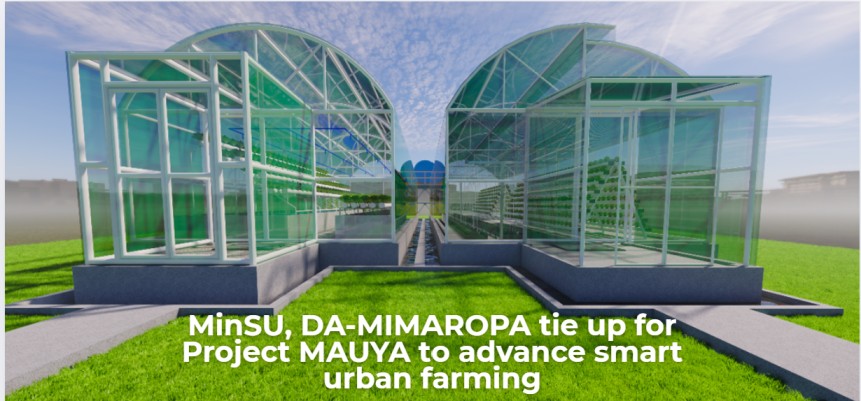
Mindoro State University (MinSU), in partnership with the Department of Agriculture–MIMAROPA (DA-MIMAROPA), has initiated the Modern Agricultural Urban and Peri-Urban Yield Advancement (Project MAUYA), a pioneering initiative aimed at promoting sustainable and smart farming practices in urban and peri-urban communities. The project is currently in its initial phase, with benchmarking activities and design discussions already conducted to finalize the layout and systems of the demonstration site.
Deriving its name from the Hanunuo Mangyan word “mauya” meaning “bountiful harvest,” the project seeks to address the challenges of rapid urbanization, shrinking farmlands, and increasing food demand by introducing cutting-edge agricultural technologies such as automated vertical gardens, aquaponics, hydroponics, and drip fertigation systems.
With a combined funding support of ₱5.6 million - ₱4 million from DA-MIMAROPA and ₱1.62 million from MinSU - the project will establish a demonstration farm and training facility at MinSU Victoria Campus. The site will not only showcase advanced farming systems but also serve as a hub for hands-on training, research, and technology transfer for farmers, students, agricultural practitioners, and local government units.
Among the project’s components include the development of smart vertical farming systems for high-value crops such as lettuce, strawberries, bell peppers, and cherry tomatoes; IoT-based aquaponics systems that integrate fish and vegetable production; crop health and biosecurity programs to ensure safe and sustainable farming in controlled environments; agri-enterprise development and value chain integration to strengthen local agribusiness opportunities; and an agri-ecotourism and experiential learning hub that will foster community engagement and knowledge-sharing.
“As our communities continue to urbanize, embracing smart and sustainable farming systems like Project MAUYA becomes essential. This initiative is not only about showcasing modern agricultural technologies, it’s about empowering our farmers, researchers, and aspiring agri-entrepreneurs to innovate, adapt, and thrive in a rapidly changing food production landscape,” said Engr. Randy A. Joco, Project Leader.
Once fully operational, Project MAUYA is expected to train at least 150 farmers, students, and practitioners, capacitate 50 agricultural extension workers, and generate significant research outputs that will shape the future of smart urban farming in the region and beyond.
The initiative is in line with the National Urban and Peri-Urban Agriculture Program (NUPAP) of the Department of Agriculture, which promotes food security, reduced logistics costs, and healthier lifestyles in highly urbanized areas.
#SDG2 #SDG9 #SDG11 #SDG12 #SDG13 #SDG17
302 Staff
10531 Students
9 Colleges
4 Years